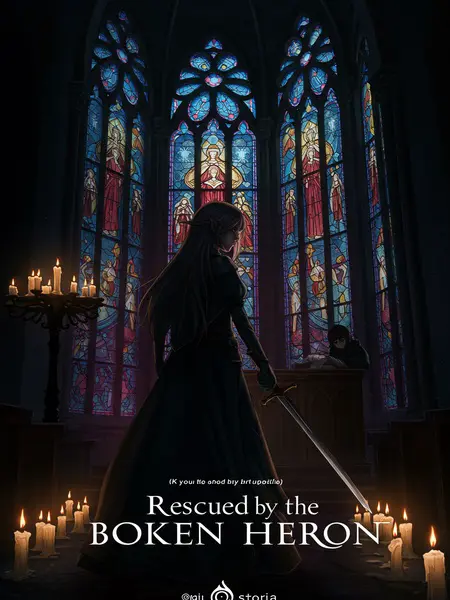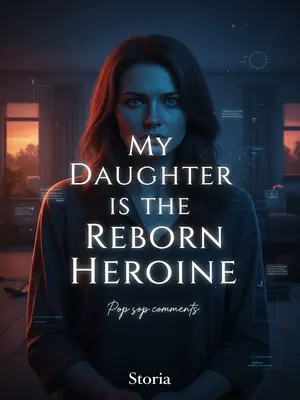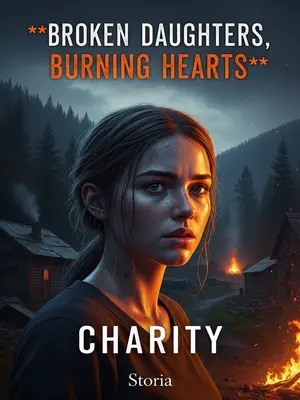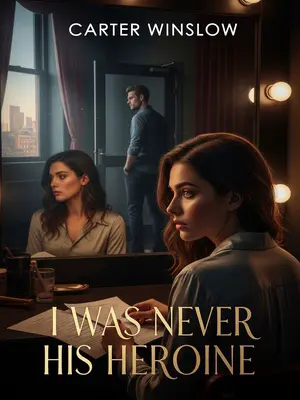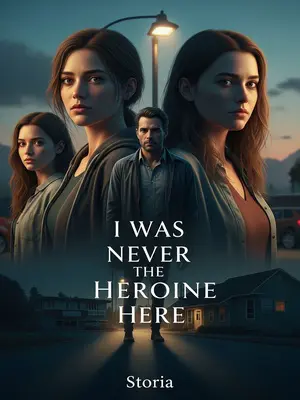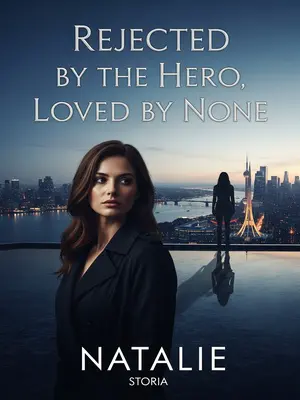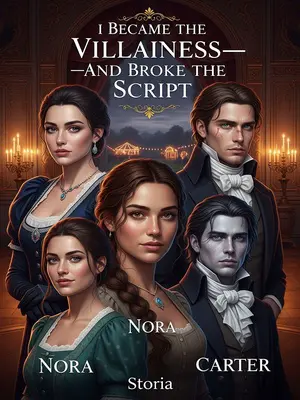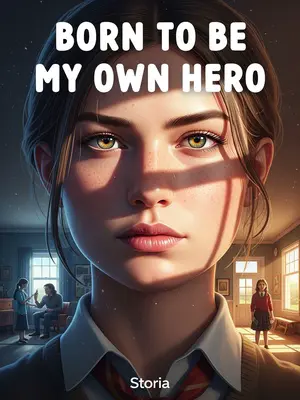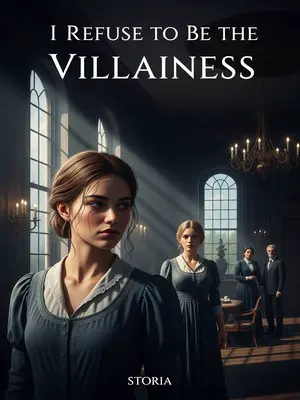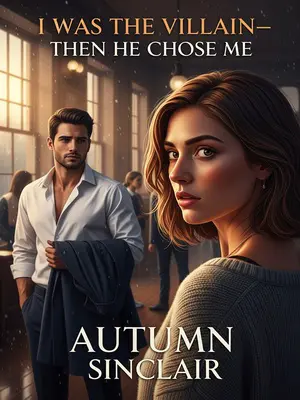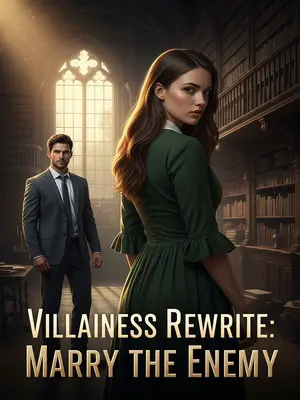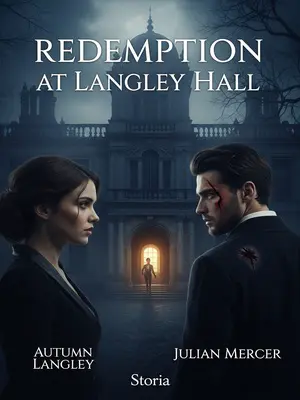Chapter 2: The Night Everything Burned
2
I ended up in this world, but I wasn’t born the daughter of a senator or even a mayor.
Out here, bloodlines matter. Everybody knows who your people are, what side of the tracks you’re from. Me? Just regular folks. No one would ever call us important.
I’d always lived in this little border town in New Mexico, never left—a total nobody.
Our town doesn’t even show up on most maps. Tumbleweeds and old pick-ups, Main Street with more boarded-up windows than working ones, and the same handful of faces in church every Sunday.
Under the harsh desert sun and wind, I grew tall and my skin grew rough. After my parents died, I had to survive. I bound my chest, disguised myself as a guy. Out here, nobody looked twice at a skinny medic in a too-big uniform. That was my luck. I worked as a medic for the Army.
Every morning, I’d tape myself up, pull on the uniform, and pray no one looked too close. It wasn’t courage—just necessity. Folks out here don’t ask questions when you’re useful.
By all rights, the fate of someone like Hannah Lark had nothing to do with me.
People here mind their own business. If you want to survive, you keep your head down, do your job, and don’t get caught up in other people’s tragedies.
In times like these, ordinary people like me are lucky just to get by.
There’s a resigned gratitude that comes with having food on the table and a roof, even if the roof leaks and the food’s beans from a can. Nobody expects more.
But somehow, I couldn’t help but look back at that bloodied, filthy figure.
After patching up the officer’s wounds, I noticed my gaze was still fixed on Hannah Lark on the cot. A suggestive grin crept across his face. He slapped my shoulder, eyes glinting with lewd intent, and said, "You look green as grass—never even talked to a woman, huh? Well, she’s out of her mind now, so hell, knock yourself out."
He smelled like stale beer and cheap cigarettes. The others snorted, nudging each other, eyes narrowing with cruel amusement. My face burned, but I couldn’t move.
The others roared with laughter.
Their voices bounced off the tent canvas, thick and sour. I tried not to react, but my hands balled into fists at my sides.
I was stunned, not reacting for a moment.
They thought I was just overjoyed and dumb, laughing, "Let the rookie have a turn!"
The officer shot a look of disgust at the tearful Hannah Lark. Just then, someone from command called them away for a meeting, so they all left, joking and shoving each other.
Their boots stomped across the ground, voices fading into the night. For a second, it was so quiet, all I heard was my own heartbeat and the hum of the fluorescent bulb.
For a moment, only Hannah Lark and I remained in the tent.
The tent felt even smaller, the air thick with sweat and old fear.
I snapped out of it, glanced at her battered body, and didn’t approach right away. Instead, I went out, fetched a basin of clean water, drew the curtain, and walked to the woman on the cot, who was alternating between sobs and laughter. When she noticed someone approaching, her gaze was numb and unmoving.
She probably thought I would treat her the same as those men, so she arched her neck, as if she no longer cared what kind of torment awaited her.
Until I gently wiped the blood and filth from her body and applied medicine to her wounds. Only then did she slowly lower her head, her eyes twisting to look at me.
Her skin was burning up under my hands, but I worked as gently as I could, humming a song my mom used to sing in Spanish when I was sick. I tried not to meet her eyes, but when I did, I saw something flicker—something stubborn and bright, buried deep.
She was already broken.
She didn’t remember me at all, her eyes wary and indifferent.
But I didn’t mind, calmly bandaging her wounds, my voice gentle: "Don’t be afraid. I remember you."
I remember, under the steel tracks of invading tanks, when men were gunned down and women taken as spoils, she was the angel who dropped from the sky to pull the children out from under the chaos.
I could still see it—the way she’d shouted orders, the way the kids clung to her legs, gunfire snapping overhead. Out here, stories get around. Some of them are true.
3
Hannah Lark was the daughter of a decorated general. She joined the Army at ten, went to war at sixteen, and won countless victories.
People in these parts never forget a famous family. Old Mrs. Rodriguez at the diner used to point to a yellowed newspaper clipping above the cash register—Hannah Lark shaking hands with the president. I’d memorized every detail by the time I was twelve.
Her military record outshone any senator’s. At seventeen, she was awarded the Medal of Honor by presidential decree.
Back then, she was as dazzling as the sun. Even across a thousand miles, I’d heard from old-timers at the local bar that Hannah Lark was a living legend—her rank equal to that of a war hero.
Old timers told stories about the time she held the pass outside Las Cruces against an entire battalion, or how she’d refused to leave her wounded behind even as enemy shells fell. She wasn’t just a soldier—she was a symbol.
But sadly, she was the tragic heroine.
At the height of her glory, she fell in love with the fifth son of a powerful governor, Miles Grant, who had grown up in foster care.
The tabloids loved to gossip about them—the war hero and the upstart politician’s son, both survivors, both determined to make something of themselves. It was the kind of story people wanted to believe in, until it all went wrong.
She fought on the battlefield for him, earning medals, never expecting that Miles Grant—ruthless in his ambition—would, after seizing power with her help and that of his own sister, eliminate all his enemies, including the Lark family, who had once supported the previous administration.
The newspapers ran headlines for weeks—conspiracy, betrayal, the Lark family’s downfall. In the bars, people whispered that she’d been used, thrown away like an empty bottle.
This governor, once scorned, never felt gratitude. He hated those who had seen his humiliation, and feared them as well.
So he forged evidence, accused the Lark family of treason, and ordered the execution of all three hundred family members—men sent to prison for life, women forced into prostitution—completely destroying the Lark family’s generations-long reputation as loyal patriots.
They say power in America comes with a price. Here, the cost was measured in ruined names and lives. The town elders still refused to speak the Lark name above a whisper.
Hannah Lark, once celebrated, drew her sidearm in fury in the state capitol, enraging the governor. She was drugged, her skills destroyed, and sent to the border—a place where the Lark family’s influence was weakest, where she had only ever won a single battle, and where few remembered her—to be humiliated.
Here, everyone said she deserved to die. They’d all forgotten her past achievements, only knowing she was the governor’s discarded woman, a criminal slave for treason—no longer the female commander Hannah Lark who made the enemy tremble.
I’d heard the talk at the mess hall, the way her name had become a punchline. I’d even caught myself thinking it—why didn’t she run, why didn’t she fight back?
Before ending up here, I too had cursed the heroine for being useless, hating her for not saving herself.
But after coming here, I realized how terrifying power truly is.
I quietly wiped the dirt from her face.
The water was cool, the rag rough. Her breath hitched but she didn’t flinch away. I remembered how Dad used to say that healing was an act of rebellion in a world determined to break people.
Perhaps sensing I meant no harm, or perhaps she simply had no strength left, she lay there stiffly, her eyes empty, letting me clean her.
When I finished, I withdrew my hand and looked at the woman who had closed her eyes, all will to live gone.
The image before me overlapped with that heroic figure on horseback.
She was once as brilliant as the sun.
Suddenly.
A wild, reckless thought surged in my heart.
I wanted—to change her fate.
Hannah Lark should not have such an ending.
The idea scared me so badly my hands shook. I didn’t even believe in miracles. But something about her—about the way she kept breathing, even when everything else had been taken away—felt like a kind of challenge.
4
The moment this thought arose, it startled me.
Am I crazy?
I could hear my dad’s voice in my head—“Don’t be a hero, kid.” But my hands were already on the wheel, and it was too late to turn back.
I’m just an ordinary person. When reading, it was easy to talk big.
I laughed a little under my breath, the sound harsh in the empty tent. It’s one thing to make promises to yourself in the dark. Another to actually do something.
But in reality, I can barely protect myself, let alone save someone else.
Yet the fire in my chest wouldn’t die.
A few nights later, when enemy firebombs rained down on the base, the raging flames that engulfed Hannah Lark’s tent also burned away my reason.
The alarms blared, red lights spinning, smoke pouring through the air vents. I saw guys stumbling through the haze, coughing and shouting, grabbing their rifles and running toward the noise. The world was chaos, orange and black.
Countless firebombs fell, and the camp was instantly ablaze. The surrounding guards panicked, grabbing their rifles and rushing into battle.
Suddenly, I realized—this was my chance.
The firelight flickered in my eyes, fanning the wild hope in my heart.
The moment stretched out, my hands slick with sweat. The flames glowed in the rearview mirror, licking the sides of the tent like hungry dogs.
As a medic, I should have been treating wounded soldiers. Instead, I took advantage of the chaos, grabbed a pickup truck, rushed to the burning tent, hoisted Hannah Lark onto the bench seat, and sped off in the opposite direction.
My grandparents were doctors, and I had inherited their skills.
As long as we escaped, maybe I really could save her.
I floored the gas pedal, the engine rattling so loud I thought it might fall apart. My mind raced through every first-aid lesson I’d ever learned, praying it would be enough.
In the vast desert, no matter how chaotic, my actions were too obvious. I was soon discovered.
"Hey, you there, what are you doing—"
Someone shouted behind me.
But I didn’t dare look back, didn’t dare stop. My heart pounded wildly in my chest.
Freeing a prisoner is a federal crime.
This was probably the boldest thing I’d done in more than thirty years across two lives.
But strangely, I didn’t regret it.
I gripped the wheel tighter, dust pluming behind us. For the first time in a long time, I felt alive—terrified, yes, but alive.
